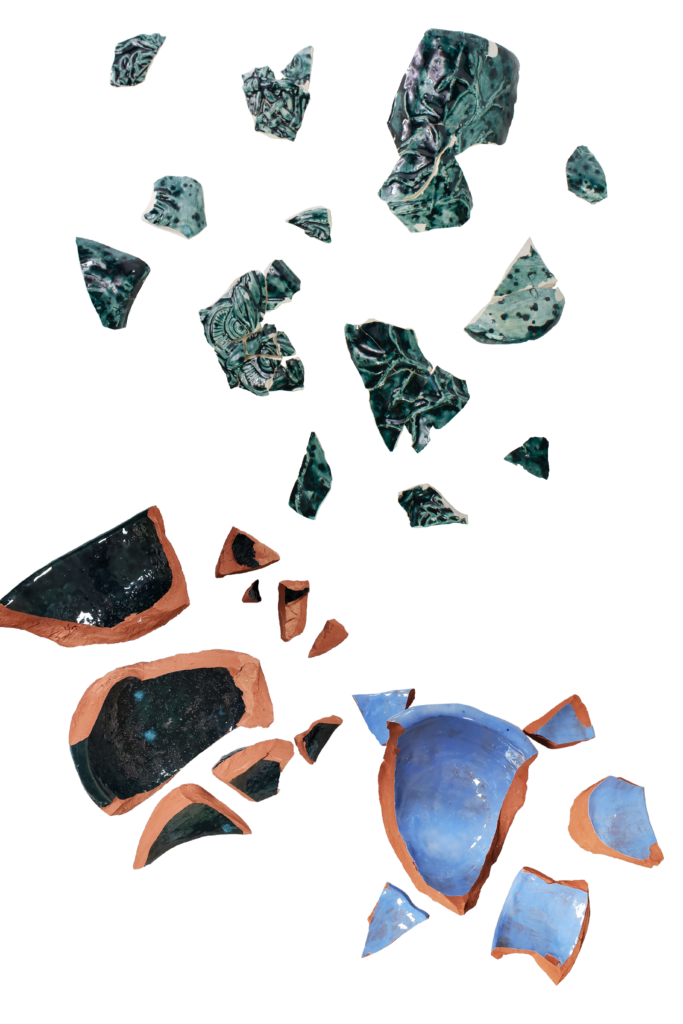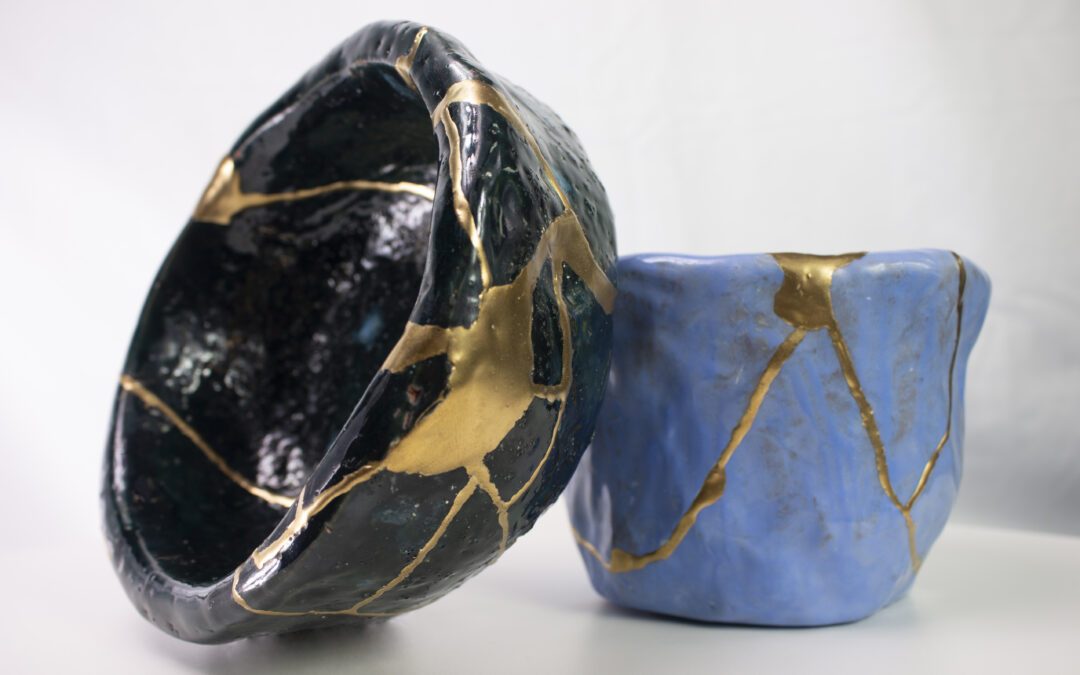Several months ago, David, a Crossroads student in California, mailed several handmade clay pots to the Crossroads home office. He is in a therapeutic arts program in his facility, and he wanted to share his beautiful creations with us.
Unfortunately, by the time the box reached our office, everything inside was completely shattered. As I looked at the shards of clay in the box, my heart broke. This student had so generously shared himself with us, but here it was, broken into pieces.

Through this process, the piece of pottery takes on a new visual identity. It becomes a new creation. In fact, a kintsugi bowl is often more beautiful and more valuable than the original.
Our team went to work trying to find someone who could repair these precious clay pots. There aren’t many craftsmen who perform kintsugi repair in the United States, but we found a small pottery studio in Delaware that did an excellent job turning the shards of clay into a new creation.
We were thrilled to send photos of the repaired pots back to David, and he was very grateful. We are also deeply moved by the way this form of pottery repair reflects the mission of Crossroads and the mission of the body of Christ.
We live in a world that is deeply fractured by sin. But the good news is that, through the death and resurrection of Jesus, our broken world is being mended by the ongoing work of the Spirit and the people of God.
At Crossroads, we read testimonies every day from students whose hearts are being mended by God’s grace. Only Jesus can take the broken pieces of our lives and bind them together with His golden grace, making us more beautiful than before.
In Psalm 31, David lamented, “I have become like broken pottery.” This is the reality for all of us. But through Christ, we can come to know the God who “heals the brokenhearted and binds up their wounds” (Psalm 147:3).
And this mending process isn’t just God slapping a Band-Aid on you. It’s a deep, refining, intricate process done by the Master Artisan of your soul that results in a brand-new creation.
2 Corinthians 5:17 says, “Therefore, if anyone is in Christ, the new creation has come.” In Christ, you aren’t just repaired—you are made new!
Many of us try to hide the cracks and fractures in our lives. The Gospel compels us not to hide our brokenness but to open ourselves to healing. This means being honest about our fears, failures and infidelities with God and with others. In the process, we open our hearts to the grace that can mend us and make us new.
What is refreshing about walking alongside men and women in prison is their honesty and transparency. Many people in prison have experienced so much pain and brokenness in their lives that they don’t hide from it anymore. They aren’t afraid to name it. That puts them in a posture to receive God’s love and healing.
Those of us who haven’t been through as much pain may struggle to be honest about our sin and brokenness. So let’s allow Crossroads students to lead the way in being real about our struggles and confessing them to God. They are showing all of us how to enter the ongoing process of experiencing new life in Christ.
You can be a part of God’s restorative work in the world by becoming a Crossroads mentor. It’s a commitment of as little as one hour a week and can make an eternal impact in the lives of people in prison.

